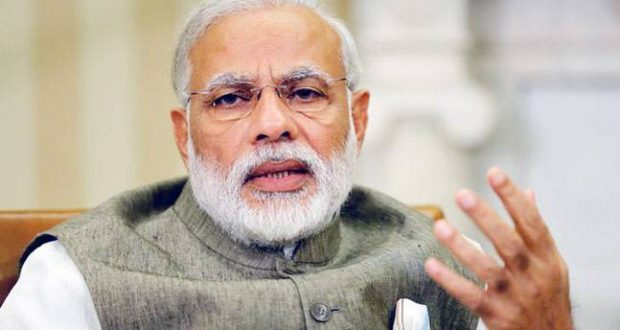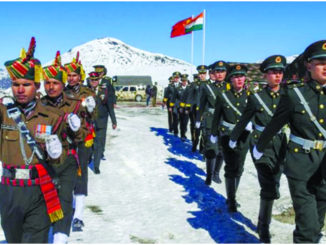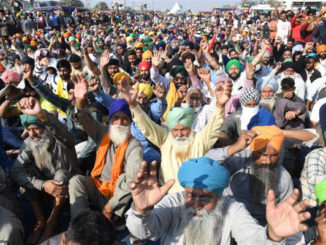
Prime Minister Narendra Modi, July 12, held a high-level meeting over the violence in Jammu and Kashmir, which has claimed 33 lives, and appealed for calm even as curfew continued for the fourth consecutive day in the Valley.
Modi, who returned to the capital early in the morning after his four-nation tour of Africa, held the review meeting that was attended by Home Minister Rajnath Singh, External Affairs Minister Sushma Swaraj, Finance Minister Arun Jaitley, Defence Minister Manohar Parrikar, National Security Advisor Ajit Doval, and Foreign Secretary S. Jaishankar besides senior security officers.
The meeting took stock of the situation in the Kashmir valley that has seen repeated clashes between thousands of protesters and security forces following the killing of Hizbul Mujahiddin commander Burhan Wani July 8.
Besides 33 people killed in the violence so far, nearly 1,400 people have been wounded, many seriously.
The Prime Minister also voiced concern over the violence in the Valley where curfew continued for the fourth consecutive day July 12.
” The Prime Minister has appealed to the people of Jammu and Kashmir to maintain calm and peace so that normalcy returns in the valley and no innocent lives are lost,” Minister of State in Prime Minister’s Office Jitendra Singh told reporters soon after the meeting concluded.
Jitendra Singh also said that the Prime Minister offered every assistance to the state government and assured it of providing every help.
He said the Prime Minister is keeping a close watch on the sequence of events in the valley.
The Prime Minister also expressed hope that innocent people should not face inconvenience and expressed satisfaction over the ongoing Amarnath Yatra.
In Kashmir, amid curfew in most parts of the valley, the authorities grappled to control continuing violence.
Police said “strict curfew shall continue” almost all across the valley to prevent the spillover of street violence and counter-violence.
Separatist groups have extended the ongoing protest shutdown in the valley until July 13.
National Conference leader and former Chief Minister Omar Abdullah raised questions on Jammu and Kashmir being “unrepresented” at the high-level meeting.
In a tweet, Abdullah said that Chief Minister Mehbooba Mufti’s presence at the meeting could have been ensured via video-conferencing.
“I understand if Mehbooba Mufti didn’t leave the state to attend (the meeting) but why not by video conference? State unrepresented,” Abdullah tweeted.
Reacting to the prevailing situation in the valley, Congress Vice president Rahul Gandhi said that the gains made during the UPA regime in Jammu and Kashmir have been nullified by the “fatalistic policies” of the Modi government.
Speaking at an Eid Milan reception hosted by Jamiat Ulema-e-Hind chief Maulana Asad Madni here on July 11 night, Gandhi said that mishandling the situation in the Kashmir Valley had led to political turmoil.
MIM chief Asaduddin Owaisi urged the Centre to call an all-party meeting on the violence in the Kashmir Valley.
The Hyderabad MP said the meeting should be called to discuss how to end the cycle of violence and to show empathy following street protests that have claimed 32 lives.
A group of Muslim clerics met with Home Minister Rajnath Singh to discuss ways and means to restore normalcy in the Kashmir Valley.
The clerics said the Minister assured them of all possible help in restoring peace in the disturbed valley.
Umer Ahmed Ilyasi of All India Organization of Imams of Mosques told media later that they will visit Kashmir and urge people, especially religious leaders, there to help the valley to return to normalcy.
Ilyasi said he along with other Muslim religious leaders will also meet Chief Minister Mehbooba Mufti.
Meanwhile, the annual Amaranth Hindu pilgrimage resumed July 11, as 300 vehicles carrying pilgrims from different states of India entered the Kashmir Valley.





Be the first to comment